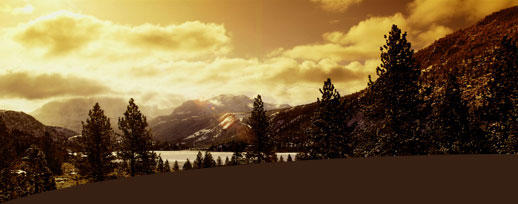
Alaska

Alaska is the largest state of the United States of America by area; it is situated in the northwest extremity of the North American continent, with Canada to the east, the Arctic Ocean to the north, and the Pacific Ocean to the west and south, with Russia further west across the Bering Strait. Approximately half of Alaska's 683,478 residents reside within the Anchorage metropolitan area. As of 2007, Alaska remains the least densely populated state.
The area that became Alaska was purchased from the Russian Empire after Western Union discontinued construction of its first electric telegraph line which ran from California, up the coast of North America, across the Bering Strait, continuing across Siberia to Moscow and into the European telegraph network. Despite $3 million in U.S. investment for the Russian-American telegraph expedition, work ceased upon the completion of the competing Transatlantic telegraph cable.
The U.S. realized the potential of continuing the line to Moscow and sent Secretary of State William H. Seward to negotiate with the Russian Ambassador to fund the remaining phases of the telegraph line. Russia did not see the potential in funding, so Alaska was offered in exchange for the value of the Russian-American telegraph. The Russians feared that if they did not sell the territories of Russian America, they would be taken from them by the westward expansion of the British in Canada.
The U.S. Senate approved the purchase of Alaska from the Russian Empire on March 30, 1867, for $7.2 million at two cents per acre, about five cents per hectare. The land went through several administrative changes before becoming an organized territory on May 11, 1912 and the 49th state of the U.S. on January 3, 1959. The name "Alaska" was already introduced in the Russian colonial time, when it was used only for the peninsula and is derived from the Aleut alaxsxaq, meaning "the mainland" or more literally, "the object towards which the action of the sea is directed.
